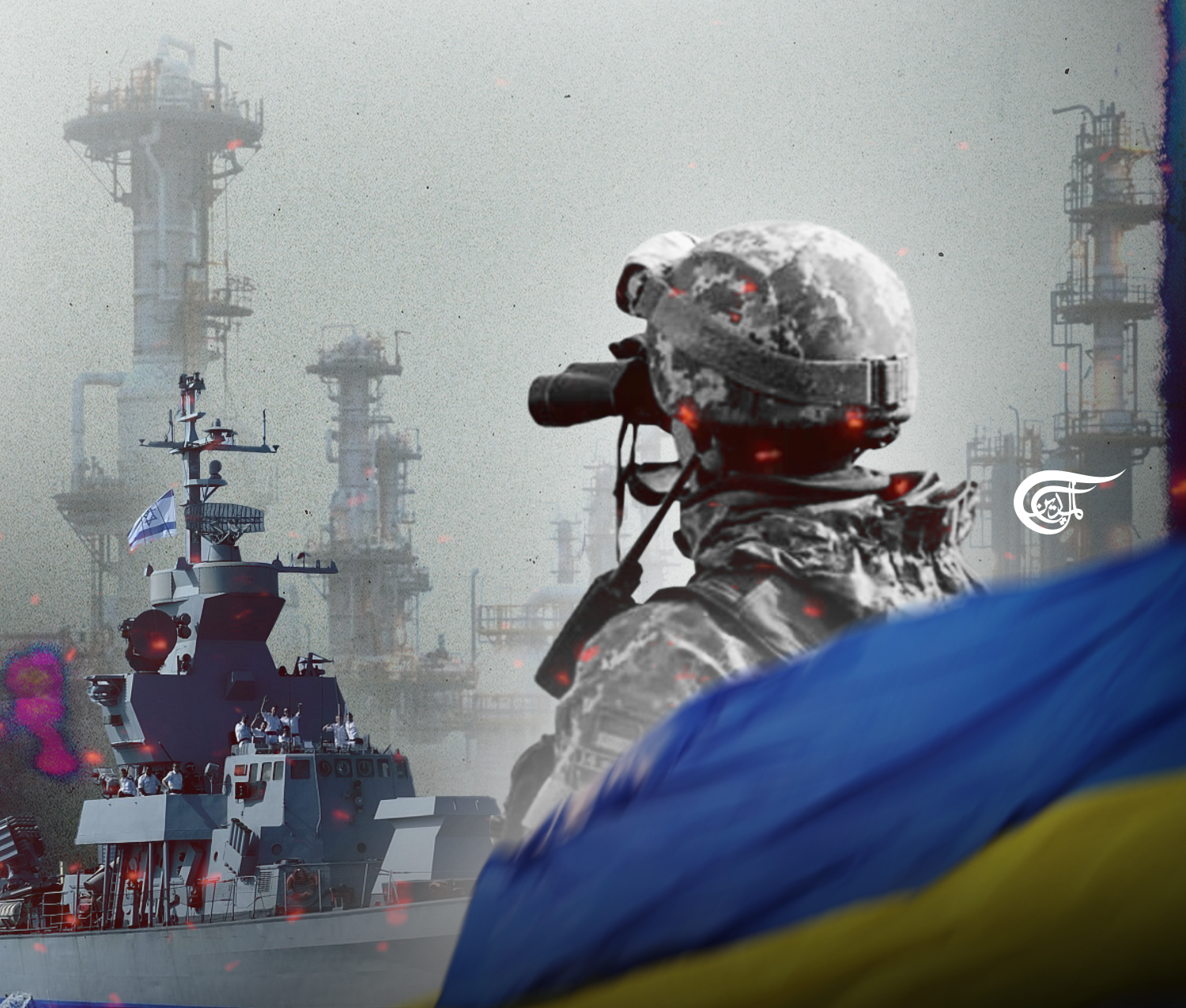How the Ukraine crisis impacts middle east politics
The Ukraine crisis complicated the situation in the middle east [West Asia] for many parties allied with the US, as "Israel" and the UAE find it more difficult to balance their relations between their Patreon and Russia.
-

The problem for "Israel" is, that if they pick a fight with Russia at any point, this could be extremely detrimental to them
The ongoing war in Ukraine, which is being framed as a marker for the beginning of the ‘New Cold War’ between East and West, is already taking its toll on Middle East politics and for the likes of "Israel" and the United Arab Emirates, this spells potential disaster.
Since the beginning of the war in Ukraine on February 24, when Russian forces officially announced their ‘special military operation in the Donbas’, Middle East powers have all had their relationships put to the test. "Israel" is perhaps the most reported on, as it is directly part of the Western camp, and its hesitancy to aggravate Russia has been telling, but beyond this, there has also been a big question mark around which side the Arab regimes will take too.
In the case of "Israel", after releasing careful statements during the early days of the war, about Ukraine’s sovereignty and pledging to support its people, without mentioning Moscow at all, they then went a step further in the recent United Nations General Assembly vote, condemning Russia’s invasion of Ukraine. Currently, Tel Aviv maintains a close relationship with both Moscow and Washington, but it has made it clear at this point that when push comes to shove it is the United States’ interests they will defend over the interests of Russia.
So far this has not meant a fully-fledged feud between the two sides, but for sure the Israeli arming of the Ukrainians and their backing of NATO’s argument has not aided relations. It is likely Moscow is still trying to use the Israelis as a go-between for diplomatic efforts, but the problem for "Israel" is, that if they pick a fight with Russia at any point, this could be extremely detrimental to them. A hostile Russia, combined with a hostile Iran, both in Syria, could mean major trouble.
For the United Arab Emirates, which aspires to become a regional powerhouse and attempts to balance its relationship with pretty much every key international player, it has too, run into a major problem. Its relationship with Washington, although tight, is now being put to the test and the fact that it abstained at the UNGA vote is a message that Abu Dhabi seeks a clear middle-ground position between the US and Russia. But just as its normalization deal with the Israeli regime has now put it in the middle of a tug-of-war between Tel Aviv and Tehran, the Ukraine crisis has placed it in a similar position between Washington and Moscow. The UAE wants it all, US weapons, but a close relationship with China and Russia, Israeli economic cooperation but also trade with Iran. This could spell disaster if it decides to cross the line, of one of the many sides, at any point.
Saudi Arabia is a key US ally, the current crisis - due to US sanctions on Russia - has sent the prices of oil to a high not witnessed since 2012. Riyadh has been expected, as has the UAE, to pump more crude oil in order to lower the oil prices and balance the market, but so far that has not happened. Instead, Saudi Arabia’s crown prince Mohammed Bin Salman is allegedly demanding the US Biden administration recognise him as the de-facto ruler of the Saudi regime and offer more direct support for Riyadh’s devastating war on Yemen, according to Reuters reports.
Although the US and its British allies in London have been directly supporting the Saudis offensive war in Yemen, Riyadh evidently does not like Joe Biden’s public appearance as being an anti-Saudi president. The KSA voted against Russia in the General Assembly, the US also launched airstrikes on Yemen when Russian forces began their offensive in Ukraine, but now seems to be the moment of truth when it comes to US politics. We will now see just how convincing Washington’s statesmen are, although many people are asking why this issue wasn’t resolved before as the US had been warning of a Russian invasion of Ukraine for weeks.
The issue of US relations with the Gulf countries is really key here, as from the get-go the United States has been attempting to bring them on the side, specifically Qatar. The US clearly needs an alternative supply source for oil and gas to Europe, if it is going to maintain its crushing sanctions on Moscow. But the problem still remains, an issue that Doha has itself pointed out, there is no one nation that can be the alternative here.
Then we have Iran and the ongoing talks in Vienna to revive the 2015 Joint Comprehensive Plan Of Action (JCPOA), or the nuclear deal, which seems to have been moved in a more positive direction. The United States has significantly changed its tone from that of last year, it’s purged many of the more hawkishly anti-Iran voices from its negotiating team and the Ukraine crisis may prove to push the US into an agreement on this front.
The difference between President Joe Biden and his predecessor Donald Trump, is that they represent two different camps in the United States; Biden, the liberal imperialists, and Trump, the neoconservatives. The neoconservatives seem to be hawkishly focused on attacking China and Iran, whilst caring less about Russia and their focus on NATO is also not as intense as the liberal imperialists. Whereas the liberal imperialist camp are much more inclined towards strengthening their ties with the EU and NATO, making Russia a real target, whilst their line on China and Iran is still hawkish, they approach these issues differently.
We are now seeing the liberal imperialist agenda in full swing. If the Biden administration wants to relieve some of the burden he has placed on the shoulders of his European allies, reviving the JCPOA may serve as a good gesture towards them. The European powers want to do business with Iran, but under the Trump administration, none of them dared to step out of line on this front. The potential Iran nuclear deal revival would be a good thing for both the Europeans and the Iranians.
All the points mentioned above barely scratch the surface of the entire picture; not going into the testing of Algeria’s and Turkey’s relationships with Russia, both of which are being heavily tested over both nations being presented with the possibility to provide part of the answer to the severing of oil and gas supplies from Russia to Europe. Yet, one thing is clear from what has been noted above, the absolute mess that the two camps - one aligned with the Democrats and the other the Republicans - have caused on the world stage. This is a real test of Washington’s diplomatic and strategic talent, one which it seems to be failing at so far.

 Robert Inlakesh
Robert Inlakesh
 7 Min Read
7 Min Read











